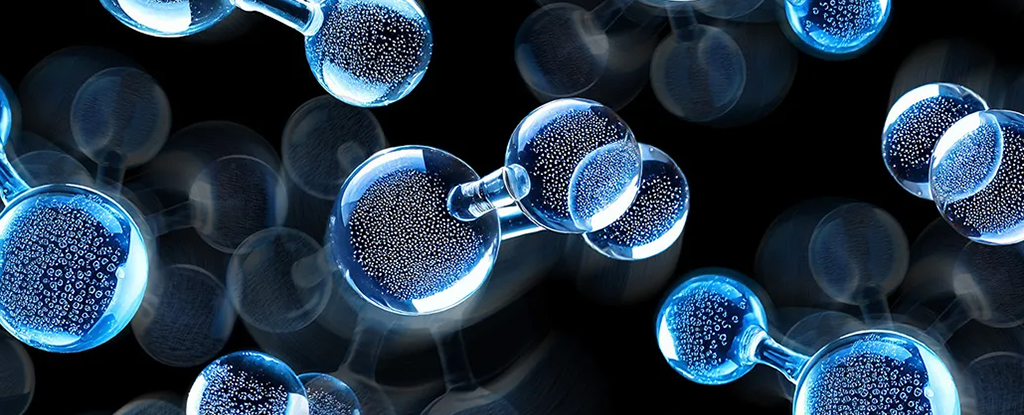ARTICLE AD
The Food and Drug Administration is upping the urgency of its warnings for consumers to avoid purchasing or consuming tianeptine – commonly called "gas station heroin" – a synthetic drug typically sold in tablet or powder form and available for purchase online as well as in convenience stores, gas stations and smoke shops. It is the active ingredient in products such as Neptune's Fix, Za Za Red and Tianaa.
Tianeptine, which is approved in some countries as a prescription drug for the treatment of depression, can mimic the actions of opioids like fentanyl. As a result, it carries similar risks of addiction, withdrawal and overdose potential. It can also lead to psychosis, seizures, kidney damage and death.
The FDA has been actively urging US consumers to avoid the drug since 2022. But vendors continue to promote the drug as a dietary supplement, despite the fact that the FDA has explicitly stated that tianeptine "does not meet the statutory definition of a dietary ingredient and is an unsafe food additive."
The Conversation asked pharmacist C. Michael White, who studies the harmful effects of substances of abuse and natural products, to explain the growing health risk to consumers of products containing tianeptine.
What is tianeptine and why is it risky?
Tianeptine stimulates the same receptors as well-known opioids such as fentanyl, heroin and morphine. When these drugs make their way from the blood to the brain, they bind to the "mu" type opioid receptor that triggers the sought-after pain relief and euphoria of those drugs as well as the dangerous effects like slowed or stopped breathing.
High doses of tianeptine can bring euphoric effects similar to heroin and can also bring about the dissociative effect – the perception of your mind being disconnected from your surroundings and body – that is reminiscent of ketamine, an anesthetic that has a role in treating post-traumatic stress disorder and depression but has also commonly been abused as a street drug.
Products containing tianeptine are often called "legal high drugs" – sometimes dubbed "gas station drugs" – a term used for all non-FDA-approved synthetic drugs that are sold casually in gas stations, online and elsewhere.
frameborder="0″ allow="accelerometer; autoplay; clipboard-write; encrypted-media; gyroscope; picture-in-picture; web-share" allowfullscreen>
What are the major adverse effects that people can experience?
Data from clinical trials, case reports and poison control centers shows that tianeptine commonly induces agitation. This is typically accompanied by a fast heart rate and high blood pressure, confusion, nightmares, drowsiness, dry mouth and nausea, among other conditions.
The most serious adverse events are slowed or stopped breathing, coma, heart arrhythmia and death. When long-term users try to stop tianeptine use, they often experience withdrawal symptoms reminiscent of opioid withdrawal.
Consumers need to be aware that products containing tianeptine may not adhere to good manufacturing practices. This means they could contain lead or have other heavy metal contamination or be contaminated by microorganisms such as salmonella or mold. They could also contain other drug ingredients that are not disclosed. Knowingly or unknowingly combining active ingredients can increase the risk of adverse events.
Additionally, the amount of the active ingredient contained in the product can vary widely, even with the same manufacturer. So past use does not guarantee that using the same amount will provide the same effect.
How are these drugs sold in the US if they are not FDA-approved?
If a drug product is not FDA-approved for prescription or over-the-counter-use, it is the Drug Enforcement Agency that is responsible for controlling market access.
Before the DEA can ban an active ingredient in a drug product, it must be designated Schedule I, meaning the drug has no legitimate medical purpose and has high abuse potential. Manufacturers do not have to alert the DEA before selling their products to US citizens. This means the DEA must detect an issue, identify the products causing the issue, identify the active ingredients in the product in question and do a full scientific review before designating it as Schedule I.
Tianeptine came to market masquerading as a dietary supplement in gas stations and smoke shops, even though it is a synthetic compound. Tianeptine is also sold online allegedly for research purposes and not for human consumption.
Tianeptine is undergoing clinical trials for the treatment of pain and depression, but sellers do nothing to make this type of labeling clear to consumers or to restrict purchases to researchers.
frameborder="0″ allow="accelerometer; autoplay; clipboard-write; encrypted-media; gyroscope; picture-in-picture; web-share" allowfullscreen>
What can people do to protect themselves and their families?
Non-FDA-approved products containing synthetic drugs are very risky to use and should be avoided. FDA-approved drugs are available by a prescription from a health professional or over the counter with active ingredients on an approved list.
If someone in a gas station, smoke shop or over the internet touts the benefits of a non-FDA-approved drug product – for pain or anxiety relief, to increase energy or for a buzz – be aware. It could be dangerous the first time you use it, but using it successfully once also doesn't mean the experience will be the same the next time, and continued use can cause addiction.
If a product is being sold "not for human consumption" or "for research purposes only," you are at a high risk if you take it. Before you take any dietary supplement, make sure you check the active ingredient to be sure that it is, in fact, a natural product and not a synthetic chemical.
If someone you know has bags with unmarked powder, a product labeled for research use or not for human consumption, or tablets or capsules not in standard drug bottles, that is a sign of a potentially dangerous situation.
Standard drug tests sold over the counter are not designed to pick up tianeptine. One of the main reasons that people use these alternative substances of abuse over regular opioids, cannabis or amphetamines is that they are much harder to detect through work- or at-home drug screens by parents, schools, employers, probation officers and so on.
If the DEA is not responding to emerging threats quickly enough, individual states can also act to ban sales of dangerous active ingredients in products.
As of January 2024, at least 12 states have banned the sale of tianeptine, according to the FDA, although people in those states can still illegally procure it from the internet. So contacting your state legislators could be a place to start exercising your power to help prevent the harms from these products.![]()
C. Michael White, Distinguished Professor of Pharmacy Practice, University of Connecticut
This article is republished from The Conversation under a Creative Commons license. Read the original article.

 1 year ago
52
1 year ago
52 

